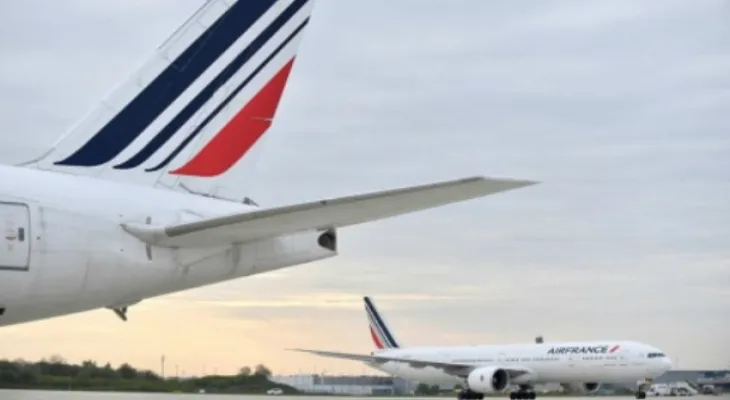Search here
Newspaper
Search here

Arab Canada News
News

Published: September 24, 2023
The military ruling system in Niger has "barred French aircraft" from crossing the country's airspace, marking a new chapter in the deterioration of relations between Paris and Niamey since the coup on July 26.
A message to air crews published on Sunday on the African Security and Navigation Agency's website stated that Niger's airspace is "open to all national and international commercial flights except for French aircraft or aircraft chartered by France, including those belonging to Air France's fleet."
The message also noted that the airspace remains closed "to all operational military flights and private flights," except those granted special permission by the authorities.
In response to questions from Agence France-Presse, Air France stated that it "does not fly in Niger's airspace."
Moreover, Air France, the main airline operating flights between Europe and Africa, suspended its flights to Niamey (four flights per week) since August 7 until further notice.
On September 4, Niger reopened its airspace to commercial flights after a closure lasting about a month.
Niger also announced on August 6 the closure "due to the imminent risk of intervention from neighboring countries" at a time when the Economic Community of West African States (ECOWAS) threatened military intervention to restore democratically elected President Mohamed Bazoum to power after he was ousted by a coup on July 26.
France has repeatedly affirmed its support for ECOWAS, even as relations between Paris and Niamey have reached their lowest point following the coup.
The military regime particularly ordered at the end of August the expulsion of the French ambassador in Niamey, Sylvain Itté, stripping him of his diplomatic immunity and canceled his entry visa.
However, he remains in his position at the embassy, and Paris refuses to recall him.
On August 3, a week after taking power, the coup military withdrew from several military cooperation agreements with France, the former colonial power in the country.
One of the agreements provided a one-month deadline, while the military regime claims that 1,500 French soldiers deployed in Niger for combating terrorist movements are "illegally" present in the country.
Periodic demonstrations are organized in the capital calling for their departure, yet they remain at their bases.
Since the coup, France has confirmed that it does not recognize the legitimacy of the military that seized power and that its official dialogue is with the democratically elected President Mohamed Bazoum, who has been detained since July 26.
The latter has resorted to the West African judiciary to secure his release and restore constitutional order in Niger.
The military regime also criticized UN Secretary-General Antonio Guterres on Friday, accusing him of "preventing" its representative from participating in the United Nations General Assembly.
A diplomatic source also indicated that the UN received two different requests to speak at the General Assembly regarding the situation in Niger: one from the foreign minister appointed by the military regime and Bakary Yao Sangaré, and the other from the government of the ousted president.
Stefan Dujarric, the spokesperson for Guterres, told Agence France-Presse, "In the case of conflicting credentials from a member state, the Secretary-General refers the matter to the Credentials Committee of the General Assembly, which decides the issue. The Secretary-General does not decide."
Comments